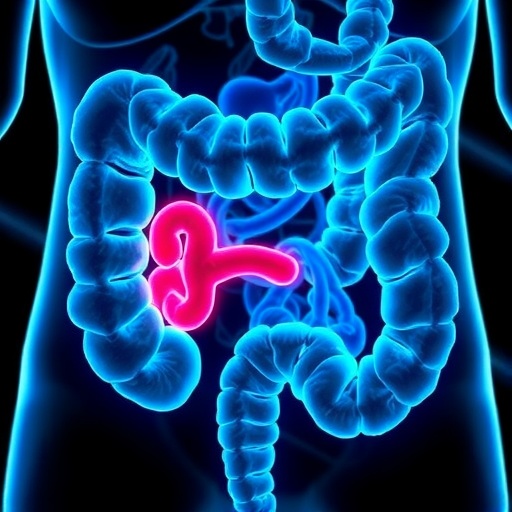In the relentless battle against colorectal cancer (CRC), a formidable challenge persists: the cancer’s uncanny ability to resist targeted therapies designed to cripple its growth. A groundbreaking study published in Nature by White and colleagues shines a light on the cellular and molecular underpinnings fueling this resistance, revealing a complex interplay of epithelial plasticity and oncogenic signaling pathways that allows the tumor to adapt and survive under therapeutic assault.
Colorectal cancer, one of the most common malignancies worldwide, originates from the lining epithelium of the colon and rectum. This epithelial tissue is characterized by rapid renewal and an extraordinary capacity for regeneration following injury. However, this very capacity is hijacked during tumorigenesis. Oncogenic mutations within key components of the MAPK (mitogen-activated protein kinase) signaling pathway, particularly KRAS and BRAF, which are frequently mutated in CRC patients, endow cancer cells with heightened growth and survival advantages. Around 40-50% of CRCs harbor KRAS mutations, while about 10% carry BRAF mutations, making these oncogenes prime targets for therapeutic intervention.
Despite the initial promise, clinical experience shows that inhibitors targeting the MAPK pathway often face the hurdle of inevitable resistance. This resistance diminishes the durability of responses and ultimately results in tumor progression. The pivotal question addressed by the research team was: What are the mechanisms by which CRCs adapt to and evade the inhibitory effects of KRAS and BRAF blockade? Unraveling these mechanisms promises to inform the design of next-generation therapeutic strategies.
Using advanced preclinical models that faithfully recapitulate the genetic landscape of advanced CRC, the researchers meticulously dissected how oncogenic MAPK signaling orchestrates the cellular state of the colorectal epithelium. Their findings revealed that sustained MAPK pathway activation induces profound changes in the epithelial cells, pushing them toward a regenerative or ‘revival’ stem-like state. This cellular state is marked by enhanced plasticity, enabling cells to dynamically switch phenotypes in response to environmental cues and stress, including therapeutic pressure.
Intriguingly, when the MAPK pathway is pharmacologically inhibited in tumors driven by mutant KRAS or BRAF, the study demonstrated a rapid and robust transcriptional reprogramming. This reprogramming shifts cancer cells away from the MAPK-driven regenerative state toward a canonical Wnt-associated stem cell phenotype. The Wnt pathway, a critical regulator of normal intestinal stem cells, appears to act as a sanctuary program for cancer cells to evade therapeutic eradication.
The researchers highlighted a crucial distinction in the temporal dynamics of resistance: KRAS-mutant tumors exhibit acute resistance to MAPK inhibitors characterized by immediate induction of the Wnt-associated stem cell program; whereas BRAF-mutant tumors manifest a delayed resistance pattern, suggesting divergent evolutionary paths shaped by genetic context. This elucidation of temporal heterogeneity in resistance responses provides vital clues for optimizing treatment regimens.
A key insight emerging from the study is the central role of epithelial cellular plasticity in governing therapeutic outcomes. Plasticity allows cancer cells to fluidly transition between different phenotypic states, including stem-like avatars that can evade drug effects. When plasticity is curtailed, such as in early metastatic disease or through targeting the ligand-dependent Wnt pathway mutations involving the gene RNF43, the therapeutic efficacy of MAPK inhibitors dramatically improves.
Notably, this paradigm helps explain clinical observations where patients harboring co-mutations in BRAF and RNF43 exhibit exceptional responses to combined BRAF and EGFR targeted therapies. The synergy of dual pathway inhibition exploits vulnerabilities in plasticity-restricted tumors, underscoring the importance of genetic and phenotypic tumor profiling in precision oncology.
The implications of this research reverberate beyond mechanistic understanding. It advocates for a strategic pivot in therapeutic design — one that goes beyond simply blocking MAPK signaling to actively managing epithelial plasticity and stem cell fate decisions. Strategies aimed at ‘corraling’ stem cell programs or restricting phenotypic switching may enhance the depth and durability of responses.
Moreover, the findings advocate for timely intervention during phases of tumor development or metastatic progression where intra-tumoral heterogeneity and plasticity are minimal. Targeting tumors before they harness the full arsenal of plasticity mechanisms may provide a therapeutic window of opportunity, potentially transforming treatment landscapes.
This study not only illuminates the adaptability of colorectal tumors but also exemplifies how integrating high-resolution molecular profiling with sophisticated in vivo modeling can decode the complexity of cancer resistance. By revealing how the dynamic rewiring of signaling networks drives epithelial plasticity and therapeutic escape, it paves the way for innovative clinical strategies that anticipate and overcome resistance.
As the field progresses, therapeutic regimens that combine MAPK pathway inhibition with agents modulating Wnt signaling or other stem cell regulatory axes may represent a new frontier. Personalized treatment approaches based on the mutational and phenotypic status of tumors hold promise to outmaneuver the resilient biology of CRC.
In conclusion, this landmark study by White et al. underscores the critical role of MAPK-driven epithelial cell plasticity in sculpting therapeutic resistance in colorectal cancer. Their insights herald a paradigm shift toward therapeutic strategies that not only target oncogenic drivers but also constrain the cancer cell’s capacity for phenotypic fluidity and regeneration. The prospect of transforming CRC treatment with durable and highly effective responses is now a tangible goal on the horizon.
Subject of Research: Mechanisms of therapeutic resistance in colorectal cancer driven by MAPK pathway mutations and epithelial cell plasticity.
Article Title: MAPK-driven epithelial cell plasticity drives colorectal cancer therapeutic resistance.
Article References:
White, M., Mills, M.L., Millett, L.M. et al. MAPK-driven epithelial cell plasticity drives colorectal cancer therapeutic resistance. Nature (2025). https://doi.org/10.1038/s41586-025-09916-w
Image Credits: AI Generated




